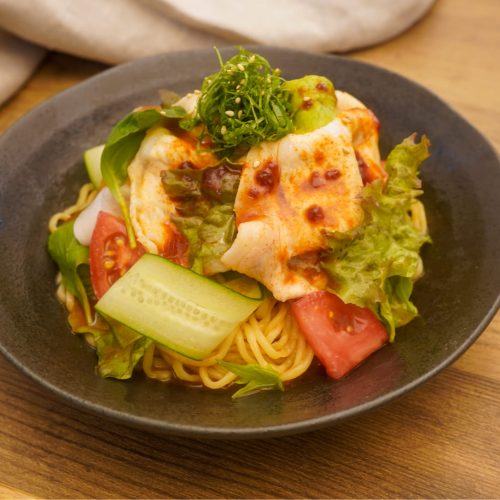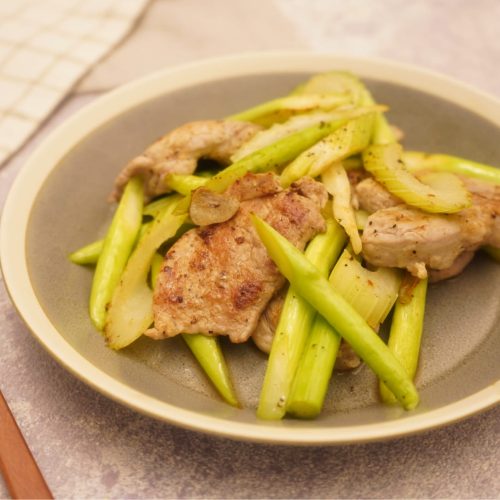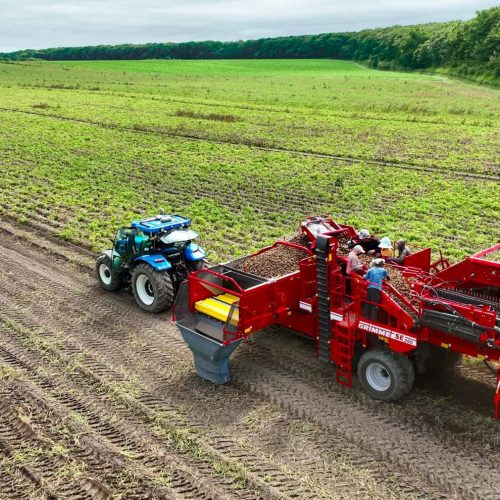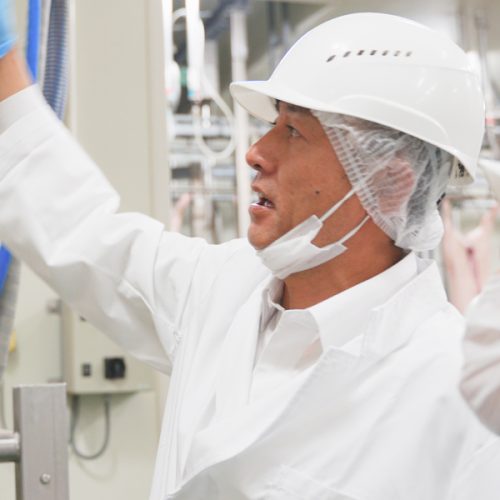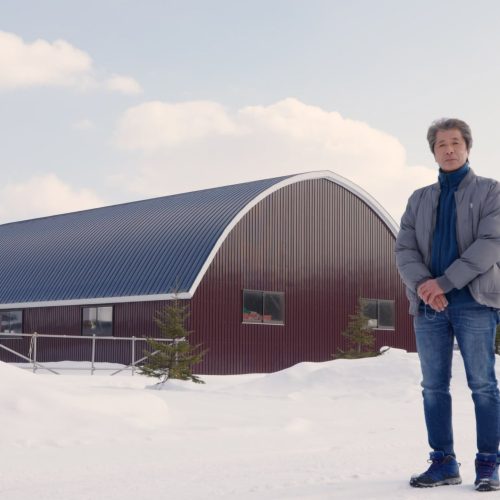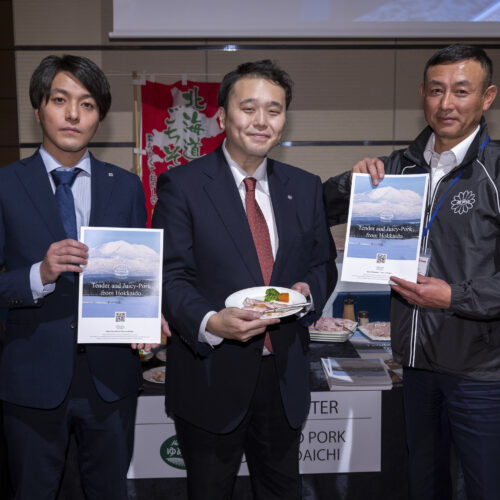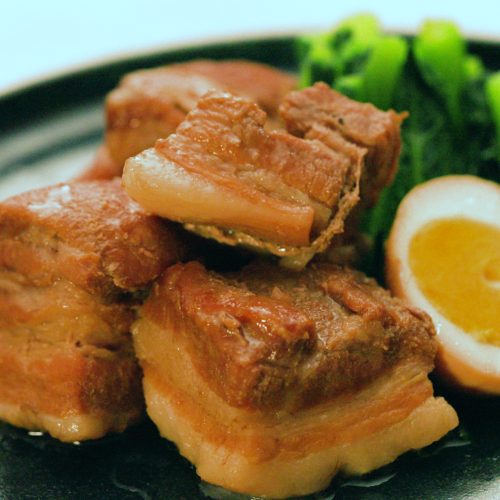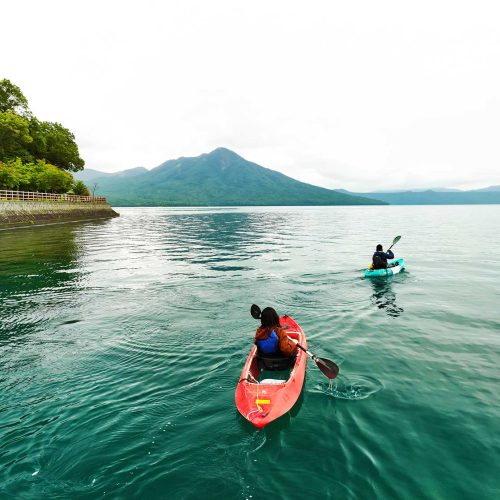- INTERVIEW
Bringing the branded pork “Yume no Daichi” to the world. - Hokkaido, a constant challenge to the world from the northern land.
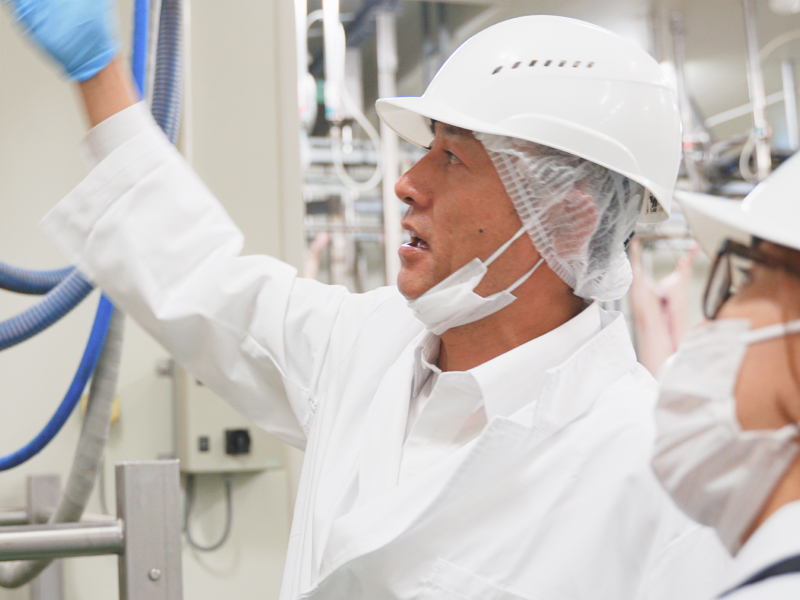
Interviewee

IZUTA Junji
Director, General Manager of Domestic Pork Division, S Foods Co.
and
Representative Director, Hidaka Meat Center Co.
Representative Director, Hokkaido Chuo Ranch Co.
Representative Director of S Foods Hokkaido Co.
About two hours from Sapporo and one hour from Chitose Airport, the town of Niikappu is located halfway between Sapporo and Cape Erimo, which juts out into the southern part of central Hokkaido.
The Niikappu River flows from the Hidaka Mountains, and in its basin are pastures where racehorse thoroughbreds are raised and vast pastures are spread out.
Turn left on National Route 235, which runs along the coast to Cape Erimo, and drive up a gentle slope with a view of pastureland from the car window. Below you can see the Pacific Ocean.
Index
- New factory to open in 2023.
- Pursuing the taste based on our original know-how cultivated through our brand beef.
- Vast Hokkaido is indispensable for “safe and secure” pig farming.
- The world that can be seen speedily and beyond.
- Flexible to meet the standards and demands of each country and region.
- We want to deliver “Yume no Daichi” from Hokkaido to all over the world through trinity operation.
New factory to open in 2023.
Hidaka Meat Center completed construction of its second plant in the spring of 2023.
“Japanese agricultural products produced in Hokkaido are synonymous with safety and security overseas. We built this new factory to protect the brand power that our predecessors have cultivated and to meet the increasing overseas demand.” President IZUTA explains.
“The new factory is equipped with the latest ingenious equipment, and is built so that the craftsmanship cultivated here can fully be demonstrated.” he said with enthusiasm.
Agricultural products forged in the mature Japanese market have a good taste and safety is taken into consideration. Therefore, Japanese agricultural products are very popular overseas.
The Hidaka Meat Center also adopts FSSC22000 to manage food hygiene, and the farms that are the basis of it have adopted ISO, and produce healthy pigs by implementing strict management.
Such on-site efforts, corporate ingenuity, and the Japanese government’s proactive measures to expand exports to overseas markets are gradually bearing fruit.
Point
Hidaka Meat Distribution Center No. 2 Cut Factory was completed on April 18, 2023 in Niikappu-cho, Hokkaido as a new factory for the Hidaka Meat Center.
In the facility with a total floor area of more than 4,300 m2, a more efficient production line has been built that combines manual processing and automatic processing by machines, making it possible to produce 800 cows per day, or about 2,000 when the No. 1 Factory is combined.
Pursuing the taste based on our original know-how cultivated through our brand beef.
S Foods Co., Ltd. is a major comprehensive meat products manufacturer, processor, and distributor. Its main product, “Kotechan,” has been seen in TV commercials in Japan and is familiar to many people. With cattle ranches located throughout Japan, the company produces, processes, and sells beef, including Kobe beef and Matsuzaka beef, both in Japan and abroad.
Hokkaido Chuo Ranch Co., Ltd. and Hidaka Meat Center Co., Ltd. are responsible for the production of “Yume no Daichi,” a Hokkaido brand of pork. President IZUTA, who is also the president of both companies, is the director and general manager of S Foods, which oversees both companies.
“Although we are a latecomer to the pork industry, we are uncompromising in our pursuit of differentiation by breed and research on feed, based on the unique know-how we have cultivated through our brand-name beef,” he said.
Commitment to Variety
President IZUTA proudly states, “The most important aspect of ‘Yume no Daichi’ is the crossbreeding of pigs as ‘Yongenton’ pork”.
The amount of ‘Sangenton’ pork consumed in Japan is dominated by ‘Sangenton’ pork, which comes from three different bloodlines, with Landrace, Large Yorkshire, and Duroc being the most common crossbreeds.
However, “Yume no Daichi” is a crossbreed of four breeds, adding the Berkshire, which is popularly known as “Kurobuta” in Japan, to these three bloodlines.
The addition of the Kurobuta pork gives the meat a pleasant, sweet fat texture and adds depth to the lean meat flavor.
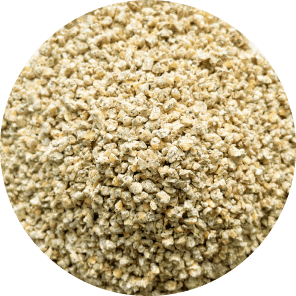
Commitment to food
“At the same time, we carefully select our feed. Fortunately, Hokkaido is a region where grains such as wheat and potatoes are abundant. The name “Yume no Daichi~ The Land of Dreams”, which is based on the image of Hokkaido, also indicates our commitment to using Hokkaido’s grains in our feed.”
“Yume no Daichi” is often praised as “light and easy to eat” and “tender even when cold”. It can be said that the “particular bloodline” and “particular feed” cultivated through the development of brand beef such as Kobe Beef have led to the high evaluation by customers.
Vast Hokkaido is indispensable for “safe and secure” pig farming.
“Hokkaido’s vast land area allows for a great distance between farms. The distance between farms is very advantageous from a quarantine standpoint. The distance between farms is very advantageous from a quarantine standpoint, as it reduces the use of chemicals and makes it easier to provide healthy, safe meat,” says President IZUTA.
The term “quarantine” refers to the prevention of epidemics. For example, if farms are located side by side on a limited amount of land, there is a risk that a contagious disease outbreak in one of them could spread to neighboring pig barns or farms.
In Hokkaido, however, the land is vast, and it is not unusual for the distance between neighboring farms to be several kilometers. The distance between farms and piggeries is large, and at the same time, it is possible to construct piggeries and pig barns at a distance from each other. This reduces the likelihood of the spread of contagious diseases and the use of chemicals for prevention.
Hokkaido has a low probability of swine fever outbreaks
One of the characteristics of Hokkaido from a quarantine perspective is the difference in fauna, with the Tsugaru Strait as the boundary line. Since pigs are domesticated wild boars, infectious diseases can spread to pigs through wild boars. However, wild boars are almost non-existent in Hokkaido.
President IZUTA points out, “I had never heard of this before, but recently there has been an outbreak of swine fever (hog cholera) transmitted by wild boars, which has become a problem in Honshu.”
When wild animals, not just pigs, carry infectious diseases, it becomes difficult to control them.
Currently, of all pork produced in Japan, only pork from Hokkaido and parts of Kyushu, which are approved by the government of the destination country, can be exported overseas.
If swine fever were to break out,” says Mr. Kato, “pigs in those areas would have to be vaccinated. Then that area would not be able to export to overseas markets.
Since there are almost no wild boars in Hokkaido, the risk of contracting swine fever can be kept low, and the possibility of vaccination is low, allowing for export to other countries with peace of mind.
Point
It is said that swine fever was first confirmed in Japan in 1887.
Thereafter, outbreaks and containment continued in various regions after the 1900s, and after eradication through vaccination, an end to the disease was announced in 2007.
However, since the outbreak was confirmed again in Honshu in 2018, vaccination is still being conducted in all regions except Hokkaido and Kyushu.
“About the outbreak status of
swine fever in Japan”. [in Japanese]
Flexible to meet the standards and demands of each country and region.
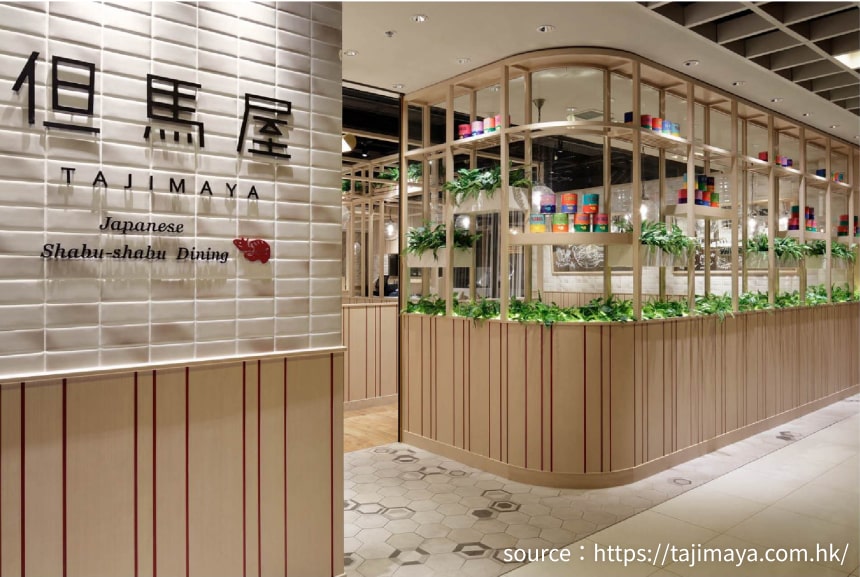
Currently, “Yume no Daichi” is exported to Hong Kong, Thailand, Singapore, Macau, Vietnam, and Dubai, in addition to Japan, and there are plans to increase the number of export destinations in the future.
“Pork is the most consumed meat in the world, and we must strive to be the meat of choice. To achieve this, in addition to taste and price, we believe it is important to create products that are safe and secure, and that meet the characteristics of demand in each region,” said President IZUTA.
Sliced pork is the mainstay of Japanese cuisine, but overseas, pork is often sold in chunks.
President IZUTA hopes to expand his company’s product lineup to meet this demand, while also keeping an eye on the recent increase in understanding of Japanese food culture.
“The other day, I visited Hong Kong and inspected mainly the customers who sell Yume Daichi. There is an assortment of pork products from all over the world, and I feel that we need to make even more appeals and proposals so that we do not get lost in the crowd.”
The world that can be seen speedily and beyond.
The “Yume no Daichi” brand pork is expected to further advance overseas by improving and expanding various aspects such as safety and security, taste, and product development. The last piece of the puzzle in building brand power is speed.
“Meat is perishable food. And with perishable food, time is of the essence. This is not only directly linked to taste, but also to the safety of the meat itself.”
Transportation is not the only way to ensure meat freshness
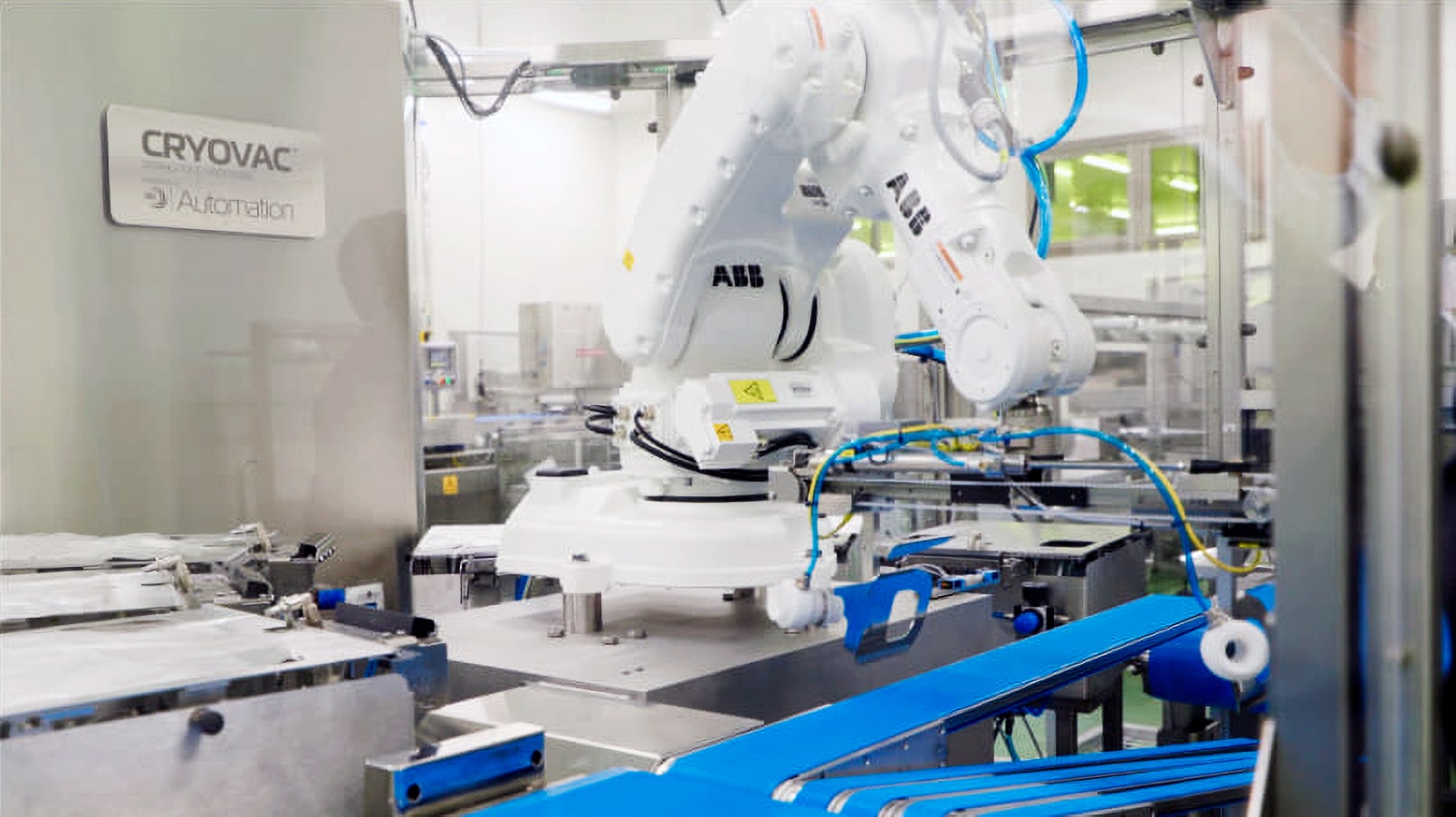
When we think of speed in perishables, the first thing that comes to mind is the speed of transportation from shipment to the store shelves.
“In addition to the speed of transportation, we as producers focus on shortening the time it takes to load the meat onto the truck. In other words, we focus on the speed of processing meat, packaging, and cooling afterward,” says President IZUTA.
He continued, “At the No. 2 Plant, which was completed this spring, we focused on shortening the production time to the minimum.”
At the Hidaka Meat Center, production takes place in the shortest possible time, and the processed meat is immediately cooled in a huge freezer. And it is a system that is handed over to the transportation part in a fresher state.
We want to deliver “Yume no Daichi” from Hokkaido to all over the world through trinity operation.
“We would like to further promote “Yume no Daichi”, including the fact that it is made in Japan and Hokkaido, and develop it into a brand that can be chosen by customers around the world. At the same time, we would like more people in Japan to pick up our products.”
In order to deliver meat to consumers around the world, there are various issues that must be cleared.
Hokkaido Chuo Farm is responsible for the safety and security of the meat and its particular flavor, while the ‘Hidaka Meat Center’s skilled craftsmen and women process the meat quickly and carefully, and the state-of-the-art facilities maximize the use of this process. S Foods oversees all of these operations and fully utilizes its expertise in beef production.

“One of our goals is to produce 240,000 head of cattle annually. Of course, since we are dealing with living creatures, it is impossible to produce exactly the same products, but we would like to be as particular as possible in our efforts to provide better products,” President IZUTA said enthusiastically.
They will actively work on what they can do and what they can think of, and clear it.
The brand pork “Yume Daichi” will continue to challenge the world with the trinity of management led by President IZUTA.


